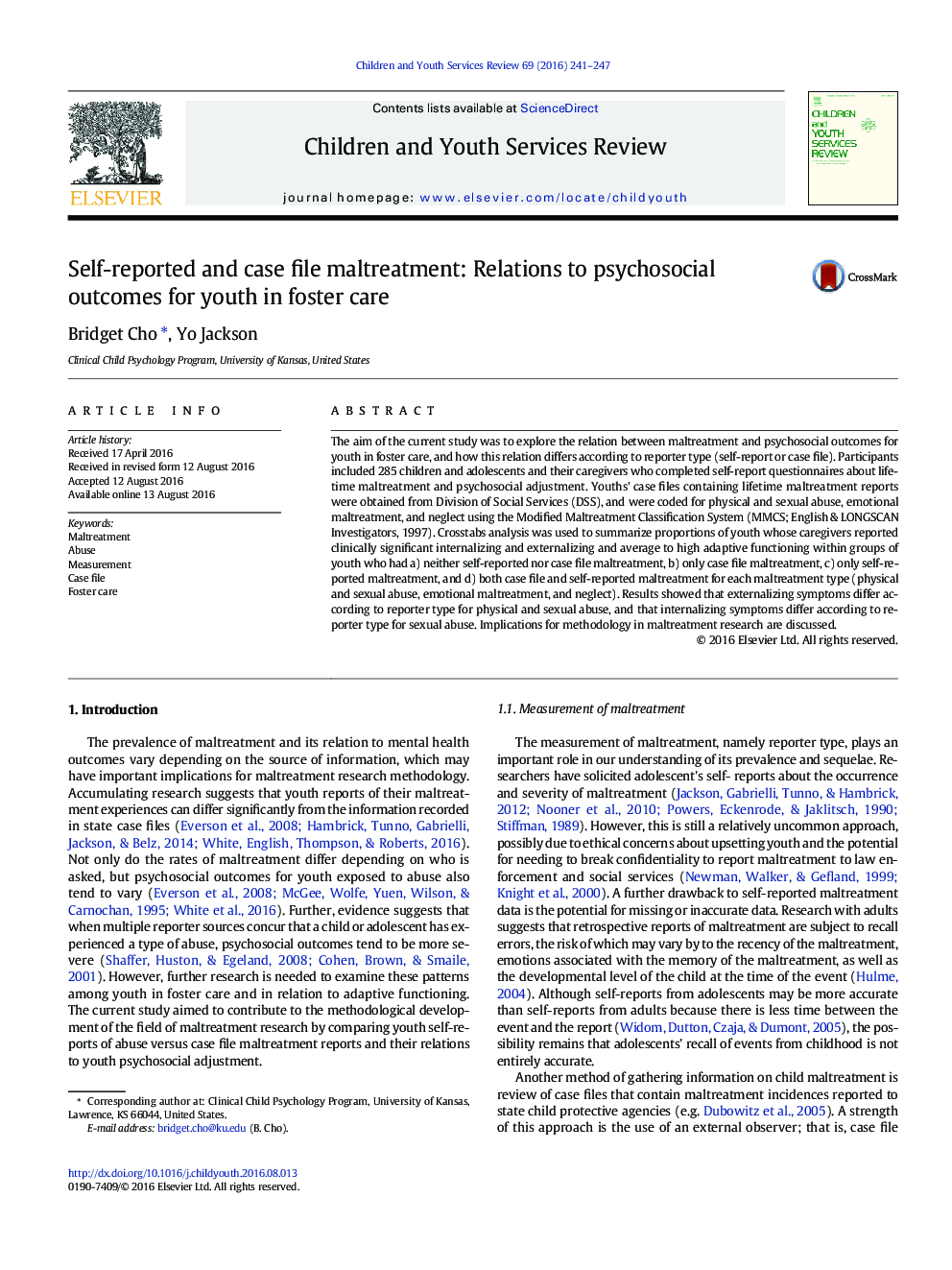| Article ID | Journal | Published Year | Pages | File Type |
|---|---|---|---|---|
| 6833676 | Children and Youth Services Review | 2016 | 7 Pages |
Abstract
The aim of the current study was to explore the relation between maltreatment and psychosocial outcomes for youth in foster care, and how this relation differs according to reporter type (self-report or case file). Participants included 285 children and adolescents and their caregivers who completed self-report questionnaires about lifetime maltreatment and psychosocial adjustment. Youths' case files containing lifetime maltreatment reports were obtained from Division of Social Services (DSS), and were coded for physical and sexual abuse, emotional maltreatment, and neglect using the Modified Maltreatment Classification System (MMCS; English & LONGSCAN Investigators, 1997). Crosstabs analysis was used to summarize proportions of youth whose caregivers reported clinically significant internalizing and externalizing and average to high adaptive functioning within groups of youth who had a) neither self-reported nor case file maltreatment, b) only case file maltreatment, c) only self-reported maltreatment, and d) both case file and self-reported maltreatment for each maltreatment type (physical and sexual abuse, emotional maltreatment, and neglect). Results showed that externalizing symptoms differ according to reporter type for physical and sexual abuse, and that internalizing symptoms differ according to reporter type for sexual abuse. Implications for methodology in maltreatment research are discussed.
Related Topics
Health Sciences
Medicine and Dentistry
Perinatology, Pediatrics and Child Health
Authors
Bridget Cho, Yo Jackson,
